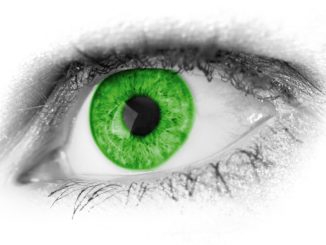
Caretaking to the detriment of what is healthy for our self
By: Alexandra DeWoskin, LCSW
The term Codependent has been around for a long time. Originally it was coined to describe the enabler and caretaker for an alcoholic or addict. That person is considered to be essentially addicted to the addict. More accurately, codependency can be called outer or external dependence. A codependent’s identity and self-worth are completely wrapped up in other people.
Codependence is a dance of dysfunctional relationships that are, at their core, narcissistic and codependent. This can include romantic, family relationships, friendship, or acquaintance relationships. While traditionally, women were taught to be the caretakers in their relationships and of the children and men were taught to be codependent on their work/career/ability to produce, and from their presumed superiority to women, these archaic norms have been chipped away at.
In my Chicago Lakeview office, I see codependency, in some form, in an overwhelming percentage of my clients, both men and women, from all sorts of backgrounds. My working theory of why so many people present with codependency is that for every narcissist, addict, abuser out there, they have touched the lives of so many others who have learned to caretake them.
Over the years, the term codependency has morphed and expanded to describe an addiction to caretaking for people in general. Codependent relationships are a type of dysfunctional helping relationship where one person supports or enables another person’s addiction, poor mental health, immaturity, irresponsibility, hurtful behavior or abuse, or under-achievement. They do for other who are capable of doing for themselves and should be doing themselves.
To simplify, Codependency is caretaking to the detriment of what is healthy or good for ourselves. It is an overwhelming need to people please, put other’s needs before your own, and an astounding lack of boundaries. It’s the opposite of selfish, it is self-less. This could be a simple as saying yes to plans when you really prefer to stay in or as severe as putting all of your needs, desires, plans, and happiness on hold to enable an abuser to control all aspects of your life.
The condition of codependency gives power to external sources or people to determine self-worth. They feel the need to constantly do for others to be accepted, liked, or defined as worthy. The fact that this dysfunction exists in these romantic, family, and human relationships, is a symptom of the dysfunction that exists in the relationship with self. But codependents are attracted to and attract people who will victimize, control, or rely heavily on their willingness to enable their bad behavior while also making excuses for them.
Related: Am I codependent?
They will overly involve themselves in other’s lives or force “help” on others and do much more than is asked of them. They feel so driven to control the outcomes of other’s behavior or decisions that they become lost in other’s issues and use manipulation to them to change. Ironically, they are often manipulated by the narcissists for whom they are drawn to to caretake. They neglect taking care of themselves, legitimizing their own feelings; establishing boundaries for self-care and protection; and enmesh themselves in other’s issues to avoid looking at their own.
Codependency is a dysfunctional emotional and behavioral defense system. Codependents are often driven by guilt, victim/martyr complexes, denial, resentment, desperate need for attention, validation, and to avoid abandonment. There is an inherent lack of self-love, sense of self, and esteem. It is a learned behavior from the environments in which they were raised.
If validation and affirmation were not a part of a child’s nurturing, they will never learn to believe they are worthy or lovable. In order to survive, children will adapt to whatever behavior will work best in helping them get their survival needs met. Then they grow up to be adults who keep dancing the dance they learned as children. Below are potential environments that may foster codependency:
- Parents could not model love of self because they were never taught.
- Parents who learned codependency in their own families of origin pass along the behaviors.
- The co-dependent/narcissistic relationship played itself out with caretakers…for example, parents that modeled addiction or abuse.
- Caretakers were neglectful or took little notice in a child’s accomplishments. So, the child jumped through hoops to be noticed.
- Some people were raised in shame-based environments that taught there is something wrong with them or something wrong with making mistakes, not being perfect, being sexual, being emotional, being too fat or too thin or too tall or too short or too whatever.
- Maybe caretakers relied too heavily on their children to be their caretaker, ‘reverse-parentification.” If the adults in a child’s life turned them to the child, this automatically puts them in an unnatural parental role, the basic needs for self-care are never taught and they forever identify as the person who must caretake.
Just as codependency is a learned behavior, it can be unlearned. But we have to acknowledge our part in our relationships. You will never be able to love another person in a healthy way unless you learn to love yourself in a healthy way. And, frankly, healthy people are not attracted to codependents. It is often said on a flight, if the oxygen masks are needed, put them on yourself anyone you’re caring for.
Why is that?
Because if you’re unconscious, you won’t be good to anyone anyway. This recovery is a process because it is about creating a paradigm shift and thinking literally the opposite of what was believed for so long. Here are some steps that codependents can work on:
- Learn to recognize the red flags in others that trigger our codependency.
- Learn to recognize and respect that uncomfortable feeling of being triggered by an unhealthy person.
- Recognize that codependency feels bad and being nice feels good.
- We need to, shall I say it, learn to prioritize ourselves and to recognize you are as important as anyone else.
- We need to learn to like and perhaps love ourselves.
- Grow self-esteem by acknowledging and crediting our accomplishments both big and small and recognizing our own greatness.
- We need to learn to be kind to ourselves and be less self-critical and more self-forgiving.
- Learn to resist the urge to save, control or fix other people. Instead, you learn to harness that into growing and evolving yourself.
- Work needs to happen to build a personal identity, grow self-esteem, and assert ownership over your feelings, desires, and needs.
- Learn how to form healthy relationships, establish reasonable boundaries, and stop enabling dysfunctional behaviors in loved ones.
- Learn how to rely on yourself for your happiness.
- Learn how to be capable of independence and intimacy with a partner. This means having your own interests and goals and the creative energy and freedom to pursue them.
Conquering codependency is empowering. This healthier relationship with self and others creates confidence and happiness. It reduces anxiety and the need for external validation.
If you find that you are putting the needs of other so far above your own and need help recognizing destructive behaviors in others and gaining the strength to walk away from harmful, unfulfilling, or abusive relationships, you might need the help of a Chicago therapist to help you develop a healthier relationship with self and navigate healthier, non-enabling relationship with others.



